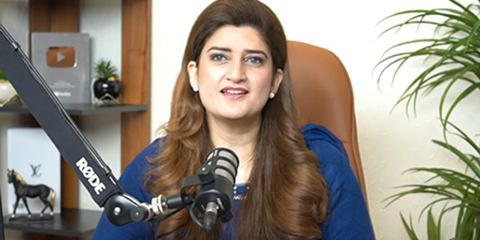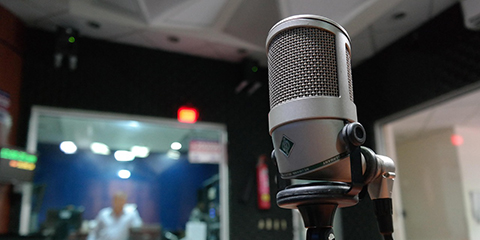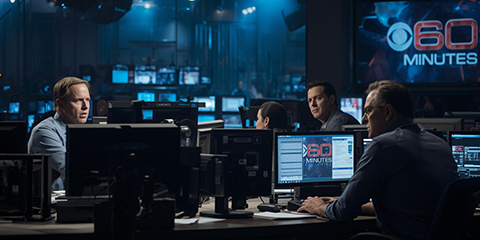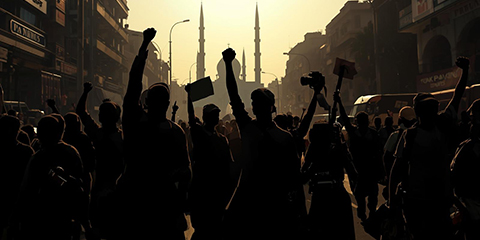Financial crisis or political censorship: The real story behind Paras Jahanzaib's removal
JournalismPakistan.com | Published 9 months ago | JP Staff Report
Join our WhatsApp channel
ISLAMABAD—In a media landscape increasingly marked by silence, one voice has chosen to speak out. Prominent Suno TV anchor Paras Jahanzaib, who mysteriously disappeared from screens "due to unavoidable circumstances," has now revealed the troubling truth behind her sudden removal.
Jahanzaib, who hosted the popular program "News Beat" on Suno TV, has become the latest addition to a growing list of journalists pushed out for refusing to conform to officially sanctioned narratives.
While the Federal Information Minister casually dismissed her absence during an appearance on Asma Shirazi's show on Hum News, attributing it to "financial issues," Jahanzaib tells a different story – one that raises alarming questions about press freedom in the country.
In a candid YouTube video that has since gone viral, Jahanzaib revealed that her channel managers had explicitly told her that the government was pressuring them to take her off air, using a "financial crisis" as a convenient pretext.
"I had made my position clear from the beginning," Jahanzaib stated. "I would take no dictation from anyone, do no planted shows, ask no questions on anyone's request, and I wouldn't allow anyone to interfere in my work."
The journalist, who had joined Suno TV from Samaa, expressed disbelief at being told she had become a liability to the channel. "A journalist's job is to ask tough questions, and I will continue to do so," she affirmed.
The real reason behind the silencing
What exactly triggered such pressure against Jahanzaib? According to her revelations, it was simply her commitment to factual reporting that challenged government narratives.
"The government tries to hide its real performance through 60-page supplements," Jahanzaib explained, "but I reveal the facts. When government officials unveil projects daily claiming them as their own, I investigate and reveal their true origins. These truths have become hard for them to accept."
Her frank disclosure highlights the increasing constriction of journalistic freedom in the country. "As journalists, we have to question those in power, but at times in doing so, we become news ourselves," she noted. "News organizations have always been under pressure with certain red lines that shouldn't be crossed. However, now more such lines have been drawn."
Despite these challenges, Jahanzaib expressed gratitude to colleagues who stood by her since being off-air, including journalists Razi Dada, Umar Cheema, Arif Hameed Bhatti, and Salman Ghani.
Looking ahead with determination, she announced her intention to return to broadcasting soon on "some good platform" where journalistic integrity would be valued.
As press freedom continues to face mounting challenges globally, Jahanzaib's story serves as a powerful reminder of the personal cost paid by journalists who refuse to compromise their professional ethics in the face of political pressure.
مالی بحران یا سیاسی سینسرشپ: پارس جہانزیب کی برطرفی کی اصل کہانی
اسلام آباد - ایسے میڈیا ماحول میں جہاں خاموشی بڑھتی جا رہی ہے، ایک آواز نے بولنے کا فیصلہ کیا ہے۔ مشہور سنو ٹی وی اینکر پارس جہانزیب، جو "ناگزیر حالات" کے باعث اسکرین سے غائب ہوگئی تھیں، نے اب اپنی اچانک برطرفی کے پیچھے چھپی تشویشناک حقیقت کا انکشاف کیا ہے۔
جہانزیب، جو سنو ٹی وی پر مقبول پروگرام "نیوز بیٹ" کی میزبانی کرتی تھیں، ان صحافیوں کی بڑھتی ہوئی فہرست میں شامل ہوگئی ہیں جنہیں سرکاری بیانیے پر عمل نہ کرنے کی وجہ سے نکال دیا گیا ہے۔
جبکہ وفاقی وزیر اطلاعات نے ہم نیوز پر عاصم شیرازی کے شو میں ظاہر ہوتے ہوئے ان کی غیر موجودگی کو عام انداز میں "مالی مسائل" قرار دیا، جہانزیب ایک مختلف کہانی بیان کرتی ہیں - ایسی کہانی جو ملک میں صحافتی آزادی کے بارے میں تشویشناک سوالات اٹھاتی ہے۔
ایک بے باک یوٹیوب ویڈیو میں جو اب وائرل ہو چکی ہے، جہانزیب نے انکشاف کیا کہ ان کے چینل مینیجرز نے انہیں صاف بتایا تھا کہ حکومت انہیں آف-ائر کے لیے دباؤ ڈال رہی تھی، اور "مالی بحران" کو بہانہ بنایا جا رہا تھا۔
"میں نے شروع سے ہی اپنا موقف واضح کر دیا تھا،" جہانزیب نے کہا۔ "میں کسی کی ہدایت پر عمل نہیں کروں گی، کوئی منصوبہ بند شو نہیں کروں گی، کسی کی درخواست پر سوالات نہیں پوچھوں گی، اور میں کسی کو اپنے کام میں مداخلت کی اجازت نہیں دوں گی۔"
ایوارڈ یافتہ صحافی، جو اپنی شرائط پر سماء سے سنو ٹی وی میں شامل ہوئی تھیں، نے اس بات پر حیرت کا اظہار کیا کہ انہیں بتایا گیا کہ وہ چینل کے لیے بوجھ بن گئی ہیں۔ "ایک صحافی کا کام مشکل سوالات پوچھنا ہے، اور میں ایسا کرتی رہوں گی،" انہوں نے تصدیق کی۔
خاموش کرنے کی اصل وجہ
جہانزیب کے خلاف ایسا دباؤ کیوں پڑا؟ ان کے انکشافات کے مطابق، یہ محض حقائق پر مبنی رپورٹنگ کے لیے ان کا عزم تھا جو حکومتی بیانیوں کو چیلنج کرتا تھا۔
"حکومت 60 صفحات کے ضمیموں کے ذریعے اپنی اصل کارکردگی چھپانے کی کوشش کرتی ہے،" جہانزیب نے وضاحت کی، "لیکن میں حقائق کا انکشاف کرتی ہوں۔ جب حکومتی عہدیدار روزانہ منصوبوں کا افتتاح کرتے ہیں اور انہیں اپنا دعویٰ کرتے ہیں، میں تحقیق کرتی ہوں اور ان کی اصل حقیقت کا انکشاف کرتی ہوں۔ یہ سچائیاں ان کے لیے قبول کرنا مشکل ہو گئی ہیں۔"
ان کا کھلا انکشاف ملک میں صحافتی آزادی کی بڑھتی پابندیوں کو اجاگر کرتا ہے۔ "بطور صحافی، ہمیں اقتدار میں موجود لوگوں سے سوال کرنا پڑتا ہے، لیکن کبھی کبھار ایسا کرتے ہوئے، ہم خود خبر بن جاتے ہیں،" انہوں نے نوٹ کیا۔ "خبر رساں ادارے ہمیشہ کچھ ایسی سرخ لکیروں کے دباؤ میں رہے ہیں جنہیں پار نہیں کرنا چاہیے۔ تاہم، اب مزید ایسی لکیریں کھینچ دی گئی ہیں۔"
ان چیلنجز کے باوجود، جہانزیب نے اس مشکل وقت میں ان کے ساتھ کھڑے ہونے والے ساتھیوں کا شکریہ ادا کیا، جن میں صحافی راضی دادا، عمر چیمہ، عارف حمید بھٹی، اور سلمان غنی شامل ہیں۔
عزم کے ساتھ آگے دیکھتے ہوئے، انہوں نے جلد ہی "کسی اچھے پلیٹ فارم" پر نشریات میں واپسی کا اعلان کیا جہاں صحافتی سالمیت کی قدر کی جائے گی۔
جیسے جیسے صحافتی آزادی عالمی سطح پر بڑھتے ہوئے چیلنجز کا سامنا کر رہی ہے، جہانزیب کی کہانی ان صحافیوں کی ذاتی قیمت کی ایک طاقتور یاد دہانی کے طور پر کام کرتی ہے جو سیاسی دباؤ کے سامنے اپنے پیشہ ورانہ اخلاقیات سے سمجھوتہ کرنے سے انکار کرتے ہیں۔
























